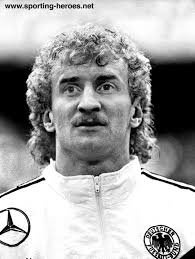Rudi Völler: A Pillar of German Football

Introduction
Rudi Völler, a name synonymous with German football, has made significant contributions both as a player and as a manager. Recognised for his striking prowess and tactical acumen, Völler is a prominent figure in the sport’s narrative, influencing generations of players and fans alike. His recent appointment as the sporting director of the German national team has reignited discussions around his legacy and vision for the future of German football.
Early Career
Born on April 13, 1960, in Darmstadt, Germany, Völler’s career began with local clubs before moving to Werder Bremen and then to the prestigious Bundesliga side, 1. FC Köln. His exceptional skills as a forward saw him clinch the title of German footballer of the year in 1982. Völler’s international career was equally impressive; he represented West Germany in two World Cups, contributing to the team that won the 1990 tournament in Italy.
Managerial Journey
After retiring from professional play in the late 1990s, Völler transitioned into management, taking the helm of the German national team from 2000 to 2004. Under his leadership, Germany reached the finals of the 2002 FIFA World Cup, showcasing a squad that melded experience and youth. His managerial career also included stints with clubs such as Bayer Leverkusen and AS Roma, where he implemented strategies that emphasised teamwork and resilience.
Recent Developments
This month, Völler was appointed as the sporting director of the German national team, a role that places him at the core of the decision-making processes leading up to the UEFA European Championship in 2024. His experience and insight are expected to play vital roles in revitalising a team that faced disappointments in recent tournaments, including the 2022 World Cup.
Conclusion
Rudi Völler’s enduring presence in football continues to inspire not only current players but also aspiring coaches and sports enthusiasts. As Germany prepares for upcoming international challenges, Völler’s leadership is anticipated to usher in a renewed sense of direction and success. His return to a prominent position in the national structure raises hopes for improved performance, making his journey—both past and present—a focal point for football fans around the world.








